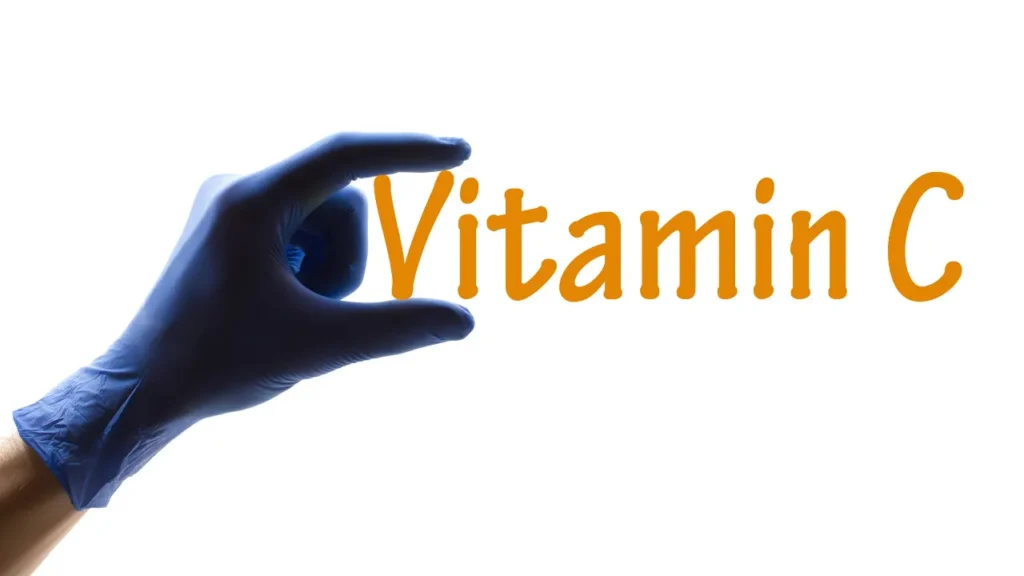Strawberries are a popular and delicious fruit that is used for more than just salads and desserts. In the world of nootropic pills, strawberries are important because they improve alertness, focus, and cognitive function. This is in addition to their gastronomic value. This article explores the properties, advantages for health, best dosage, adverse effects, possible interactions with other drugs, and responsible usage of strawberries as a nootropic supplement. We examine the chemistry of strawberries and their physiological mechanisms of action on the body and brain, drawing on a plethora of scientific literature to provide a thorough guidance for anyone looking to enhance their cognitive function naturally.
You May Also Like:
Dr Emil Nutrition Lion’s Mane Reviewed: A Leading Nootropic Mushroom Product
Strawberry: Benefits, Dosage, Side Effects, Drug Interactions, and Other Important Information is an original (NootropicsPlanet) article.
The Nature of Strawberry
The nootropic qualities of strawberries are attributed to their abundance of bioactive substances, such as phenolic acids, anthocyanins, ellagitannins, and flavonoids. Because of these substances’ well-known anti-inflammatory, neuroprotective, and antioxidant properties, strawberries are a great option for improving cognitive function. Strawberries’ special chemical makeup makes it possible to modify brain activity, which may enhance learning, memory, and neuroplasticity.
Health Benefits of Strawberry Consumption
Strawberries are a powerhouse of nutrients and bioactive compounds, offering extensive health benefits ranging from improved brain function to enhanced heart health and beyond.
Let’s explore these benefits in detail, emphasizing their multifaceted contributions to overall health and well-being.
- Brain Function: Antioxidants and polyphenols, which are abundant in strawberries, are essential for maintaining brain function. Strawberries get their vivid color from flavonoids, especially anthocyanins, which also help to preserve cognitive abilities. These substances have the ability to penetrate the blood-brain barrier, providing neuroprotective benefits, decreasing inflammatory responses, and maybe lowering the risk of neurodegenerative illnesses. Strawberries may also improve neuronal signaling and neuroplasticity, two important aspects of brain health that are related to memory and learning.
- Heart Health: Quercetin and other antioxidants found in strawberries, such as anthocyanins,have been connected to a lower risk of cardiovascular illnesses. By reducing oxidative stress, lowering blood levels of LDL (bad) cholesterol, and enhancing blood vessel function, they can help avert heart attacks and plaque accumulation. Due to its ability to control blood pressure, the high potassium level also benefits heart health.
- Blood Pressure: Vasodilation, or the relaxation of blood vessels that decreases blood pressure, is mostly dependent on potassium. Because strawberries are high in potassium, they are useful for people who have high blood pressure or who want to keep their blood pressure at a healthy range.
- Blood Sugar Regulation: Strawberries are sweet, but they also have a low glycemic index, which means that they raise blood sugar levels more slowly. Because strawberry fiber slows down the digestion and absorption of glucose, it also aids with blood sugar regulation. This can be especially helpful for people who are trying to keep their blood sugar levels steady or who have diabetes.
- Cancer Protection: Strawberries have strong anti-inflammatory and antioxidant chemicals that may help prevent cancer. Strawberries contain vitamins, flavonoids, and ellagitannins that have the ability to counteract free radicals and lower oxidative stress, which may prevent tumor growth. Some studies indicate that strawberries may be especially helpful in preventing breast, cervical, colon, and esophageal cancers, although further research is required to confirm this.
- Weight Management: Strawberries are packed full of fiber and low in calories, making them a great meal choice for managing weight. Because the fiber content prolongs feelings of fullness, it helps you feel fuller for longer, which lowers your overall calorie intake. Strawberries are a healthier option to processed sugary snacks because of their inherent sweetness, which can sate sugar cravings.
- Eye Health: Strawberries are known for their antioxidant qualities, especially their high vitamin C concentration, which can help shield the eyes from oxidative stress, which can cause age-related macular degeneration and other eye conditions. The health of the cornea and retina is also supported by vitamin C.
- Skin Health: Strawberries include vitamin C, which is essential for the synthesis of collagen, which increases the elasticity and resilience of skin and may lessen wrinkles and dryness associated with aging. Additionally, the antioxidants can shield the skin from pollutants and UV radiation damage.
- Immune Function: Vitamin C, an essential ingredient for immune system function, is abundant in strawberries. White blood cells are essential for battling infections, and vitamin C aids in their synthesis. Its antioxidant qualities also aid in lowering inflammation and enhancing the body’s resistance to disease.
- Nutrient-Rich: Beyond their specific health benefits, strawberries are rich in essential nutrients, including vitamins C and K, manganese, folate, and potassium. This nutrient diversity contributes to the overall health benefits of strawberries, supporting various bodily functions from bone health to immune response.
- High in Fiber: Strawberries are a good source of dietary fiber because they encourage regular bowel movements and lower the risk of constipation. Additionally, fiber helps control cholesterol, which may reduce the risk of heart disease.
Strawberries can provide a multitude of health benefits to your diet, including improved cognitive performance, heart protection, support for the health of your eyes and skin, increased immune system, and help with weight control. Strawberries are a nutrient-dense, high-fiber fruit that is beneficial for preserving general health.

Chemistry of Strawberry as a Nootropic
The complex combination of chemicals that make up strawberries is what gives them their nootropic qualities. Flavonoids, anthocyanins, ellagitannins, and phenolic acids are the main bioactive components.
- Flavonoids in strawberries, such as quercetin and kaempferol, are known for their antioxidant properties. These compounds scavenge free radicals in the brain, reducing oxidative stress and thereby preventing cellular damage that can lead to cognitive decline.
- Anthocyanins, which give strawberries their characteristic red color, are another class of antioxidants. They have been shown to cross the blood-brain barrier and exert neuroprotective effects, including the enhancement of hippocampal neuronal signaling, crucial for memory and learning processes.
- Ellagitannins are transformed into urolithins by gut microbiota, compounds that have been shown to have anti-inflammatory and neuroprotective effects in brain tissues. This suggests a role in modulating neuroinflammation, a factor in cognitive dysfunction and aging.
- Phenolic acids, such as ellagic acid, contribute to the neuroprotective effects by modulating neuronal signaling pathways and protecting against neurotoxicity.
The synergy between these compounds is what likely contributes to the cognitive-enhancing properties of strawberries, making them an effective nootropic.
Physiological Mechanism of Action of Strawberry
The physiological mechanisms through which strawberries exert their nootropic effects involve multiple pathways:
- Antioxidant Activity: The brain is particularly susceptible to oxidative stress due to its high oxygen consumption and lipid-rich environment. The antioxidants in strawberries can neutralize reactive oxygen species (ROS), thereby protecting neurons from oxidative damage. This mechanism is crucial for maintaining cognitive functions and preventing neurodegenerative diseases.
- Anti-inflammatory Effects: Chronic inflammation is a hallmark of many neurodegenerative diseases. The compounds in strawberries can modulate the body’s inflammatory response, reducing neuroinflammation and promoting a healthier brain environment. This includes the inhibition of pro-inflammatory cytokines and the activation of anti-inflammatory pathways.
- Neuroprotection and Neuronal Signaling: Strawberry compounds can directly interact with neuronal pathways, enhancing neurotransmission and neuroplasticity. Anthocyanins, for example, have been shown to improve signaling in brain regions involved in memory and learning. This is likely mediated through the upregulation of synaptic plasticity-related proteins and the enhancement of neural communication.
- Vascular Health: Improved vascular function is another avenue through which strawberries can enhance cognitive function. By reducing inflammation and oxidative stress, strawberries contribute to healthier blood vessels, improving blood flow to the brain. This not only provides a better supply of oxygen and nutrients but also aids in the removal of metabolic waste, crucial for optimal brain function.
- Gut-Brain Axis: Emerging research highlights the role of the gut-brain axis in cognitive health. The ellagitannins in strawberries, through their metabolism by gut microbiota into urolithins, can exert beneficial effects on brain function. This includes modulation of the gut microbiome, which has been linked to improvements in mood, cognitive function, and stress response.
Strawberries have been shown to boost cognitive function through a variety of mechanisms, including direct neuroprotective effects on neural signaling and plasticity, anti-inflammatory and antioxidant properties, benefits in vascular health, and interactions with the gut-brain axis. Together, these processes improve cognitive performance and brain health as part of the broader nootropic effects of strawberries.

Optimal Dosage of Strawberry
The best way to take strawberries to improve cognitive function is dependent on numerous factors, including the person’s age, health, and specific cognitive objectives. Nonetheless, studies indicate that consuming 150–200 grams of strawberries daily may have positive effects on cognition.
It is significant to remember that the ideal dosage may change, and seeking tailored guidance from a healthcare provider is advised.
Side Effects of Strawberry
While most people can safely consume strawberries in excess, those who are more vulnerable may have adverse consequences such as gastrointestinal distress and allergic responses. Furthermore, strawberries contain a lot of natural sugar, so those who have diabetes or are watching their sugar intake may want to take that into account. The key to reducing any potential negative effects is moderation, just like with any supplement.

Potential Substance Interactions of Strawberry
Vitamin K, which is present in strawberries, may interact with blood-thinning drugs like warfarin and could reduce their effectiveness. Strawberries’ high vitamin C concentration can also conflict with some chemotherapy medications. For safe strawberry nootropic supplementation, anyone on medication or receiving treatment for chronic diseases should speak with their healthcare professional.
Responsible Use of Strawberry
Strawberries should be a part of a balanced diet in order to reap their cognitive benefits properly. Eating entire strawberries as opposed to only supplements guarantees that a variety of minerals and phytochemicals are ingested. The source of your strawberries is another crucial factor to take into account. If at all possible, choose organic kinds to reduce your exposure to chemicals and pesticides. The cognitive benefits of strawberries can be maximized by regular ingestion within the recommended dosage range, in conjunction with a healthy lifestyle and sufficient hydration.
Strawberry:
Conclusion
Strawberries offer a wealth of benefits for both cognitive enhancement and overall health due to their rich composition of antioxidants and bioactive compounds. Regular consumption can lead to improved brain function, heart health, and more, making strawberries a superb addition to a balanced diet.
However, it is important to consult healthcare professionals for personalized advice on dosage and to consider potential interactions with medications. Ultimately, incorporating strawberries into one’s diet, whether as a whole fruit or part of a nutritional plan, can provide significant health benefits, underscoring their value as both a food and a nootropic supplement.

References:
- Promising Health Benefits of the Strawberry: A Focus on Clinical Studies. Retrieved from:https://pubmed.ncbi.nlm.nih.gov/27172913/
- Health Benefits of Strawberries. Retrieved from: https://www.webmd.com/diet/health-benefits-strawberry
- All the Reasons You Should Eat Strawberries. Retrieved from: https://health.clevelandclinic.org/benefits-of-strawberries
Important Note: The information contained in this article is for general informational purposes only, and should not be construed as health or medical advice, nor is it intended to diagnose, prevent, treat, or cure any disease or health condition. Before embarking on any diet, fitness regimen, or program of nutritional supplementation, it is advisable to consult your healthcare professional in order to determine its safety and probable efficacy in terms of your state of health.
Regarding Nutritional Supplements Or Other Non-Prescription Health Products: If any nutritional supplements or other non-prescription health products are mentioned in the foregoing article, any claims or statements made about them have not been evaluated by the U.S. Food and Drug Administration, and such nutritional supplements or other health products are not intended to diagnose, treat, cure, or prevent any disease.


